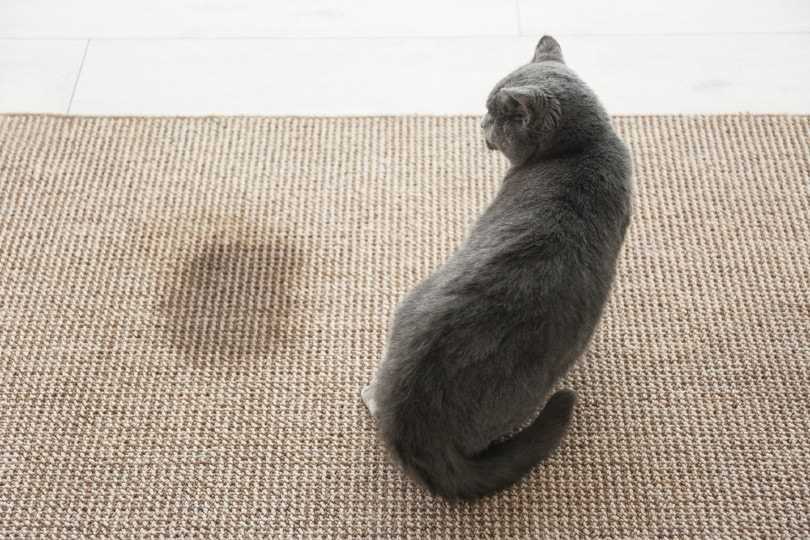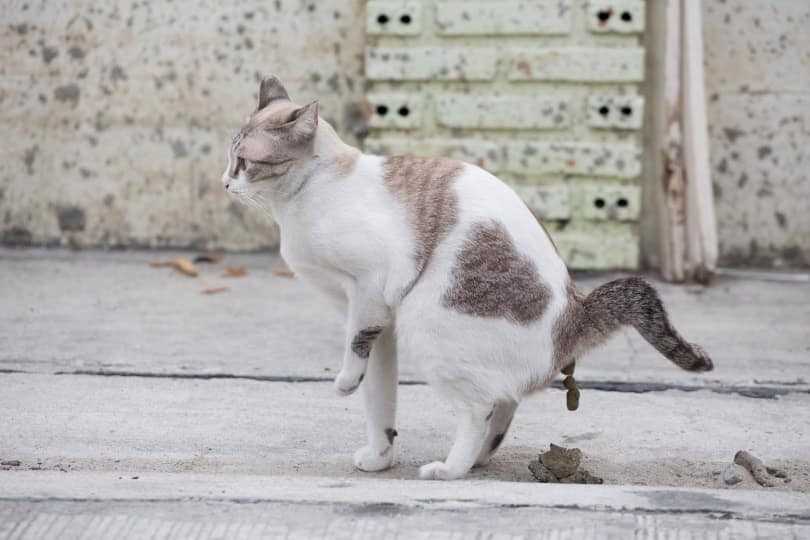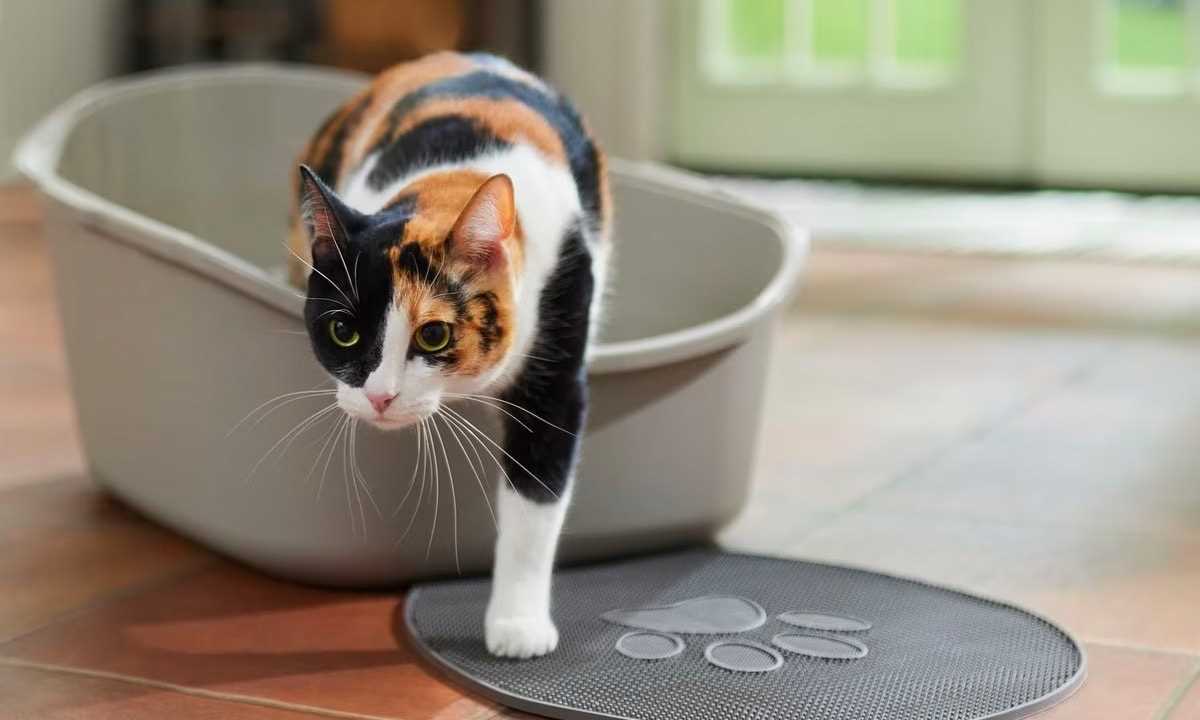Let’s cut to the chase: my humans often wonder if my bathroom habits are driven by some form of rebellion. The truth? It’s not about spite at all. When I choose a spot that’s less than ideal, it’s often a signal that something in my environment needs attention.
For instance, if my litter box isn’t clean enough or the type of substrate isn’t to my liking, I might express my displeasure in unexpected ways. It’s crucial for my humans to maintain a tidy space, as cleanliness can greatly influence my comfort and choices.
Additionally, changes in my routine or stressors in the household can prompt me to act out. New pets, loud noises, or even shifts in my humans’ schedules can make me feel uneasy. Recognizing these triggers and adjusting my environment can prevent unwanted surprises.
So, instead of viewing my actions as acts of defiance, my humans should understand them as cries for help. By paying attention to my needs and feelings, they can create a harmonious living situation for both of us.
Do Cats Poop Out of Spite

It’s a myth that I or my fellow felines do our business to make a point. When I decide to leave a surprise for my human, it’s usually tied to my needs, not revenge. Stress, changes in the environment, or health issues are often the real culprits behind unconventional behavior.
If I’m feeling anxious or my litter box is not up to my standards, I might choose an alternative location. Ensuring a clean, private space for me to relieve myself can prevent these issues. Regularly cleaning the litter box and providing multiple options can help keep things in check.
Paying attention to my habits is key. If there’s a sudden change in my behavior, it might signal discomfort or a health concern. A visit to the vet can clarify if there’s an underlying issue. Remember, I can’t express my feelings in words, but my actions speak volumes.
While it may seem like I’m acting out, it’s more about my comfort and well-being. Understanding my needs and creating an environment where I feel secure can lead to happier, healthier habits. So, rather than thinking of it as spite, consider it more as communication through behavior.
Understanding Feline Behavior: Myths vs. Reality
It’s time to clear up some misconceptions. Felines don’t act out due to emotional revenge. Here’s what I’ve gathered about our behaviors:
- Instinctual Drives: We respond to instincts. For instance, territory marking is a natural behavior, not a personal statement.
- Stress Indicators: Behavioral changes often signal stress or anxiety. Changes in routine, new pets, or environmental shifts can trigger these responses.
- Health Issues: Physical discomfort can lead to unusual habits. Regular vet check-ups are essential to rule out medical concerns.
- Communication Methods: Our actions serve as communication. If I choose unconventional spots, it’s my way of expressing needs or discomfort.
Understanding these factors can help humans foster a better environment for us. Recognizing the difference between myth and reality enables more effective communication and care.
- Observe changes in routine.
- Provide stress-relief tools like scratching posts or cozy spaces.
- Consult a vet for persistent behavioral changes.
By focusing on these aspects, humans can create a harmonious living space, reducing misunderstandings.
Common Reasons for Inappropriate Elimination in Cats

Inappropriate elimination often stems from various factors. Medical issues are a primary concern. Conditions like urinary tract infections, bladder stones, or gastrointestinal disorders can lead to unexpected behavior. Regular veterinary check-ups can help identify these problems early.
Environmental changes can also play a significant role. Moving to a new home, introducing new pets, or changes in the household routine may stress me out and result in eliminating in unwanted areas. Providing a stable environment and gradual introductions can ease this transition.
Another factor is litter box preferences. The type of litter used, the cleanliness of the box, or its location can deter me from using it. It’s important to ensure the box is clean and accessible, and I might prefer unscented litter. You can learn more about safe litter options, including whether baking soda is safe to put in cat litter, to enhance my experience.
Territorial marking is another reason for inappropriate elimination. This behavior is especially common when new pets are introduced. Providing separate spaces and resources for each pet can help minimize rivalry and reduce marking.
Lastly, behavioral issues can arise from anxiety or stress. If I feel threatened or insecure, I may express this through inappropriate elimination. Creating a safe and enriching environment, complete with toys and hiding spots, can help alleviate stress and promote healthy habits.
How to Address and Prevent Problematic Pooping Behavior

First, ensure the litter box is clean. I prefer a fresh environment, and so do many of my friends. Scoop daily and change the litter weekly to keep things inviting.
Next, consider the type of litter. I find some textures unpleasant. Experiment with various options to discover what I enjoy the most.
Placement matters. My throne needs to be in a quiet, accessible spot. Avoid high-traffic areas or places with loud noises that may cause discomfort.
Monitor my health. Sudden changes in bathroom habits may indicate a medical issue. Regular check-ups help catch any problems early.
Establish a routine. I appreciate consistency. Feeding and bathroom times should be predictable to reduce anxiety and encourage regular habits.
If there are multiple pets, provide enough boxes. A general rule is one box per pet plus one extra. This reduces territorial disputes.
Use positive reinforcement. Reward me for using the designated area with treats or praise. This builds a positive association with the correct behavior.
Finally, address any stressors in the environment. Changes like moving or new pets can be unsettling. Maintain a calm atmosphere to help me feel secure.
Let’s cut to the chase: my humans often wonder if my bathroom habits are driven by some form of rebellion. The truth? It’s not about spite at all. When I choose a spot that’s less than ideal, it’s often a signal that something in my environment needs attention.
For instance, if my litter box isn’t clean enough or the type of substrate isn’t to my liking, I might express my displeasure in unexpected ways. It’s crucial for my humans to maintain a tidy space, as cleanliness can greatly influence my comfort and choices.
Additionally, changes in my routine or stressors in the household can prompt me to act out. New pets, loud noises, or even shifts in my humans’ schedules can make me feel uneasy. Recognizing these triggers and adjusting my environment can prevent unwanted surprises.
So, instead of viewing my actions as acts of defiance, my humans should understand them as cries for help. By paying attention to my needs and feelings, they can create a harmonious living situation for both of us.
Do Cats Poop Out of Spite

It’s a myth that I or my fellow felines do our business to make a point. When I decide to leave a surprise for my human, it’s usually tied to my needs, not revenge. Stress, changes in the environment, or health issues are often the real culprits behind unconventional behavior.
If I’m feeling anxious or my litter box is not up to my standards, I might choose an alternative location. Ensuring a clean, private space for me to relieve myself can prevent these issues. Regularly cleaning the litter box and providing multiple options can help keep things in check.
Paying attention to my habits is key. If there’s a sudden change in my behavior, it might signal discomfort or a health concern. A visit to the vet can clarify if there’s an underlying issue. Remember, I can’t express my feelings in words, but my actions speak volumes.
While it may seem like I’m acting out, it’s more about my comfort and well-being. Understanding my needs and creating an environment where I feel secure can lead to happier, healthier habits. So, rather than thinking of it as spite, consider it more as communication through behavior.
Understanding Feline Behavior: Myths vs. Reality
It’s time to clear up some misconceptions. Felines don’t act out due to emotional revenge. Here’s what I’ve gathered about our behaviors:
- Instinctual Drives: We respond to instincts. For instance, territory marking is a natural behavior, not a personal statement.
- Stress Indicators: Behavioral changes often signal stress or anxiety. Changes in routine, new pets, or environmental shifts can trigger these responses.
- Health Issues: Physical discomfort can lead to unusual habits. Regular vet check-ups are essential to rule out medical concerns.
- Communication Methods: Our actions serve as communication. If I choose unconventional spots, it’s my way of expressing needs or discomfort.
Understanding these factors can help humans foster a better environment for us. Recognizing the difference between myth and reality enables more effective communication and care.
- Observe changes in routine.
- Provide stress-relief tools like scratching posts or cozy spaces.
- Consult a vet for persistent behavioral changes.
By focusing on these aspects, humans can create a harmonious living space, reducing misunderstandings.
Common Reasons for Inappropriate Elimination in Cats

Inappropriate elimination often stems from various factors. Medical issues are a primary concern. Conditions like urinary tract infections, bladder stones, or gastrointestinal disorders can lead to unexpected behavior. Regular veterinary check-ups can help identify these problems early.
Environmental changes can also play a significant role. Moving to a new home, introducing new pets, or changes in the household routine may stress me out and result in eliminating in unwanted areas. Providing a stable environment and gradual introductions can ease this transition.
Another factor is litter box preferences. The type of litter used, the cleanliness of the box, or its location can deter me from using it. It’s important to ensure the box is clean and accessible, and I might prefer unscented litter. You can learn more about safe litter options, including whether baking soda is safe to put in cat litter, to enhance my experience.
Territorial marking is another reason for inappropriate elimination. This behavior is especially common when new pets are introduced. Providing separate spaces and resources for each pet can help minimize rivalry and reduce marking.
Lastly, behavioral issues can arise from anxiety or stress. If I feel threatened or insecure, I may express this through inappropriate elimination. Creating a safe and enriching environment, complete with toys and hiding spots, can help alleviate stress and promote healthy habits.
How to Address and Prevent Problematic Pooping Behavior

First, ensure the litter box is clean. I prefer a fresh environment, and so do many of my friends. Scoop daily and change the litter weekly to keep things inviting.
Next, consider the type of litter. I find some textures unpleasant. Experiment with various options to discover what I enjoy the most.
Placement matters. My throne needs to be in a quiet, accessible spot. Avoid high-traffic areas or places with loud noises that may cause discomfort.
Monitor my health. Sudden changes in bathroom habits may indicate a medical issue. Regular check-ups help catch any problems early.
Establish a routine. I appreciate consistency. Feeding and bathroom times should be predictable to reduce anxiety and encourage regular habits.
If there are multiple pets, provide enough boxes. A general rule is one box per pet plus one extra. This reduces territorial disputes.
Use positive reinforcement. Reward me for using the designated area with treats or praise. This builds a positive association with the correct behavior.
Finally, address any stressors in the environment. Changes like moving or new pets can be unsettling. Maintain a calm atmosphere to help me feel secure.
Let’s cut to the chase: my humans often wonder if my bathroom habits are driven by some form of rebellion. The truth? It’s not about spite at all. When I choose a spot that’s less than ideal, it’s often a signal that something in my environment needs attention.
For instance, if my litter box isn’t clean enough or the type of substrate isn’t to my liking, I might express my displeasure in unexpected ways. It’s crucial for my humans to maintain a tidy space, as cleanliness can greatly influence my comfort and choices.
Additionally, changes in my routine or stressors in the household can prompt me to act out. New pets, loud noises, or even shifts in my humans’ schedules can make me feel uneasy. Recognizing these triggers and adjusting my environment can prevent unwanted surprises.
So, instead of viewing my actions as acts of defiance, my humans should understand them as cries for help. By paying attention to my needs and feelings, they can create a harmonious living situation for both of us.
Do Cats Poop Out of Spite

It’s a myth that I or my fellow felines do our business to make a point. When I decide to leave a surprise for my human, it’s usually tied to my needs, not revenge. Stress, changes in the environment, or health issues are often the real culprits behind unconventional behavior.
If I’m feeling anxious or my litter box is not up to my standards, I might choose an alternative location. Ensuring a clean, private space for me to relieve myself can prevent these issues. Regularly cleaning the litter box and providing multiple options can help keep things in check.
Paying attention to my habits is key. If there’s a sudden change in my behavior, it might signal discomfort or a health concern. A visit to the vet can clarify if there’s an underlying issue. Remember, I can’t express my feelings in words, but my actions speak volumes.
While it may seem like I’m acting out, it’s more about my comfort and well-being. Understanding my needs and creating an environment where I feel secure can lead to happier, healthier habits. So, rather than thinking of it as spite, consider it more as communication through behavior.
Understanding Feline Behavior: Myths vs. Reality
It’s time to clear up some misconceptions. Felines don’t act out due to emotional revenge. Here’s what I’ve gathered about our behaviors:
- Instinctual Drives: We respond to instincts. For instance, territory marking is a natural behavior, not a personal statement.
- Stress Indicators: Behavioral changes often signal stress or anxiety. Changes in routine, new pets, or environmental shifts can trigger these responses.
- Health Issues: Physical discomfort can lead to unusual habits. Regular vet check-ups are essential to rule out medical concerns.
- Communication Methods: Our actions serve as communication. If I choose unconventional spots, it’s my way of expressing needs or discomfort.
Understanding these factors can help humans foster a better environment for us. Recognizing the difference between myth and reality enables more effective communication and care.
- Observe changes in routine.
- Provide stress-relief tools like scratching posts or cozy spaces.
- Consult a vet for persistent behavioral changes.
By focusing on these aspects, humans can create a harmonious living space, reducing misunderstandings.
Common Reasons for Inappropriate Elimination in Cats

Inappropriate elimination often stems from various factors. Medical issues are a primary concern. Conditions like urinary tract infections, bladder stones, or gastrointestinal disorders can lead to unexpected behavior. Regular veterinary check-ups can help identify these problems early.
Environmental changes can also play a significant role. Moving to a new home, introducing new pets, or changes in the household routine may stress me out and result in eliminating in unwanted areas. Providing a stable environment and gradual introductions can ease this transition.
Another factor is litter box preferences. The type of litter used, the cleanliness of the box, or its location can deter me from using it. It’s important to ensure the box is clean and accessible, and I might prefer unscented litter. You can learn more about safe litter options, including whether baking soda is safe to put in cat litter, to enhance my experience.
Territorial marking is another reason for inappropriate elimination. This behavior is especially common when new pets are introduced. Providing separate spaces and resources for each pet can help minimize rivalry and reduce marking.
Lastly, behavioral issues can arise from anxiety or stress. If I feel threatened or insecure, I may express this through inappropriate elimination. Creating a safe and enriching environment, complete with toys and hiding spots, can help alleviate stress and promote healthy habits.
How to Address and Prevent Problematic Pooping Behavior

First, ensure the litter box is clean. I prefer a fresh environment, and so do many of my friends. Scoop daily and change the litter weekly to keep things inviting.
Next, consider the type of litter. I find some textures unpleasant. Experiment with various options to discover what I enjoy the most.
Placement matters. My throne needs to be in a quiet, accessible spot. Avoid high-traffic areas or places with loud noises that may cause discomfort.
Monitor my health. Sudden changes in bathroom habits may indicate a medical issue. Regular check-ups help catch any problems early.
Establish a routine. I appreciate consistency. Feeding and bathroom times should be predictable to reduce anxiety and encourage regular habits.
If there are multiple pets, provide enough boxes. A general rule is one box per pet plus one extra. This reduces territorial disputes.
Use positive reinforcement. Reward me for using the designated area with treats or praise. This builds a positive association with the correct behavior.
Finally, address any stressors in the environment. Changes like moving or new pets can be unsettling. Maintain a calm atmosphere to help me feel secure.






